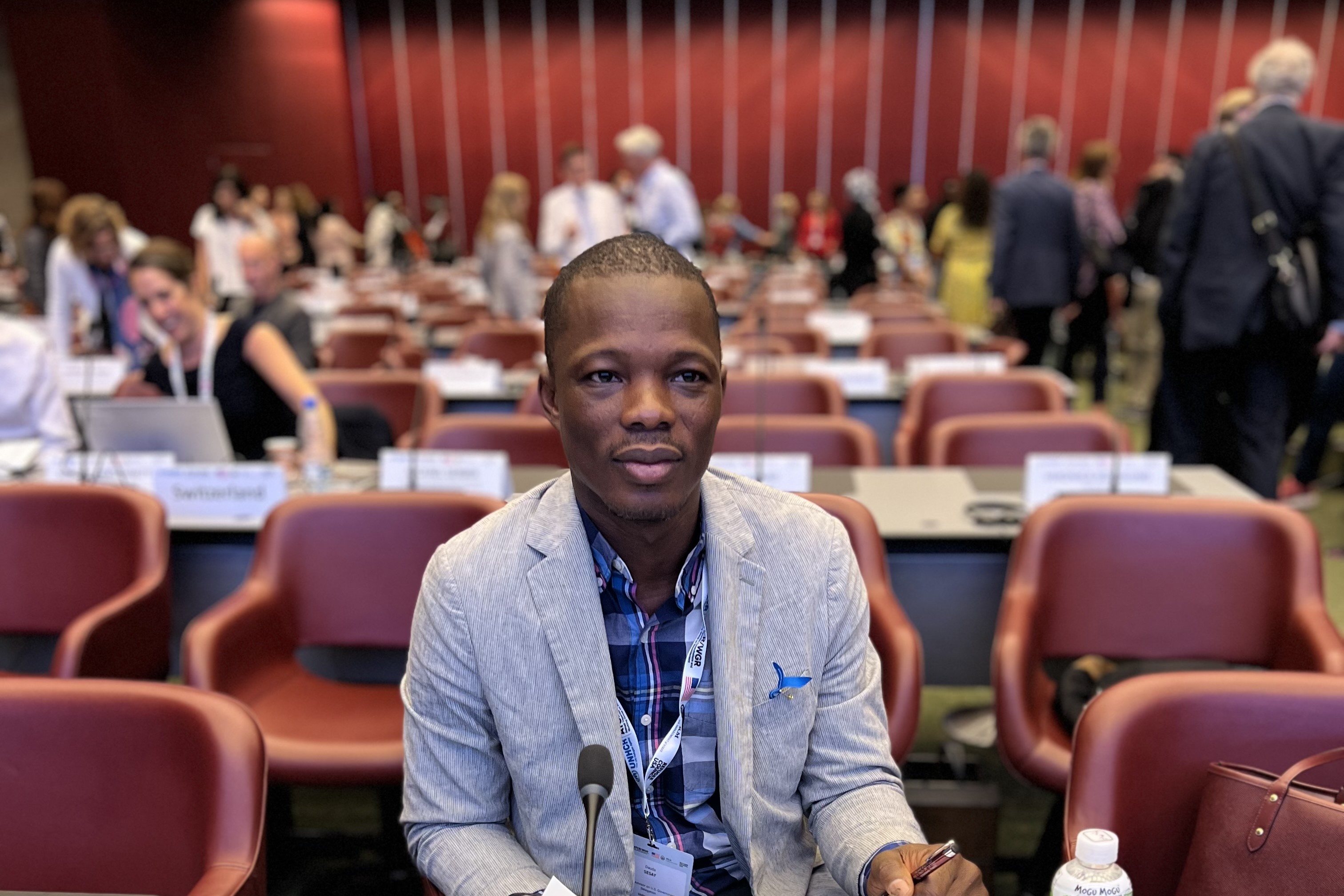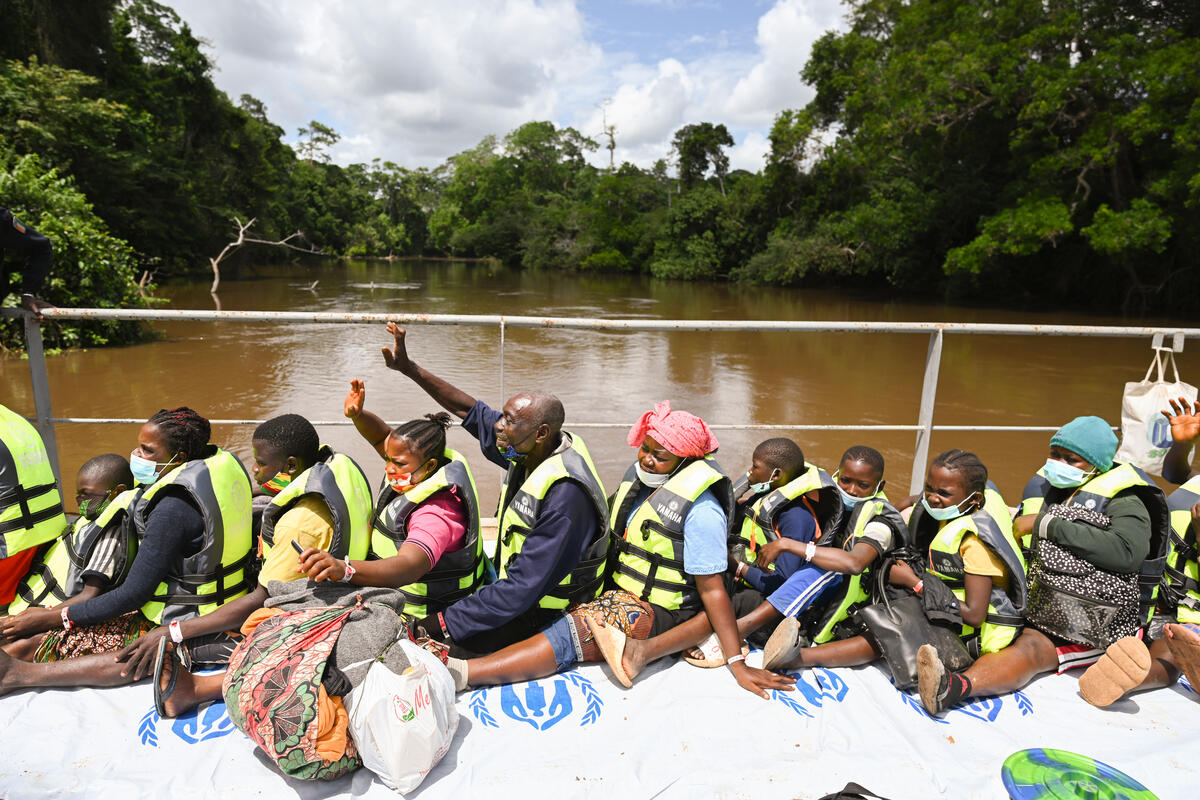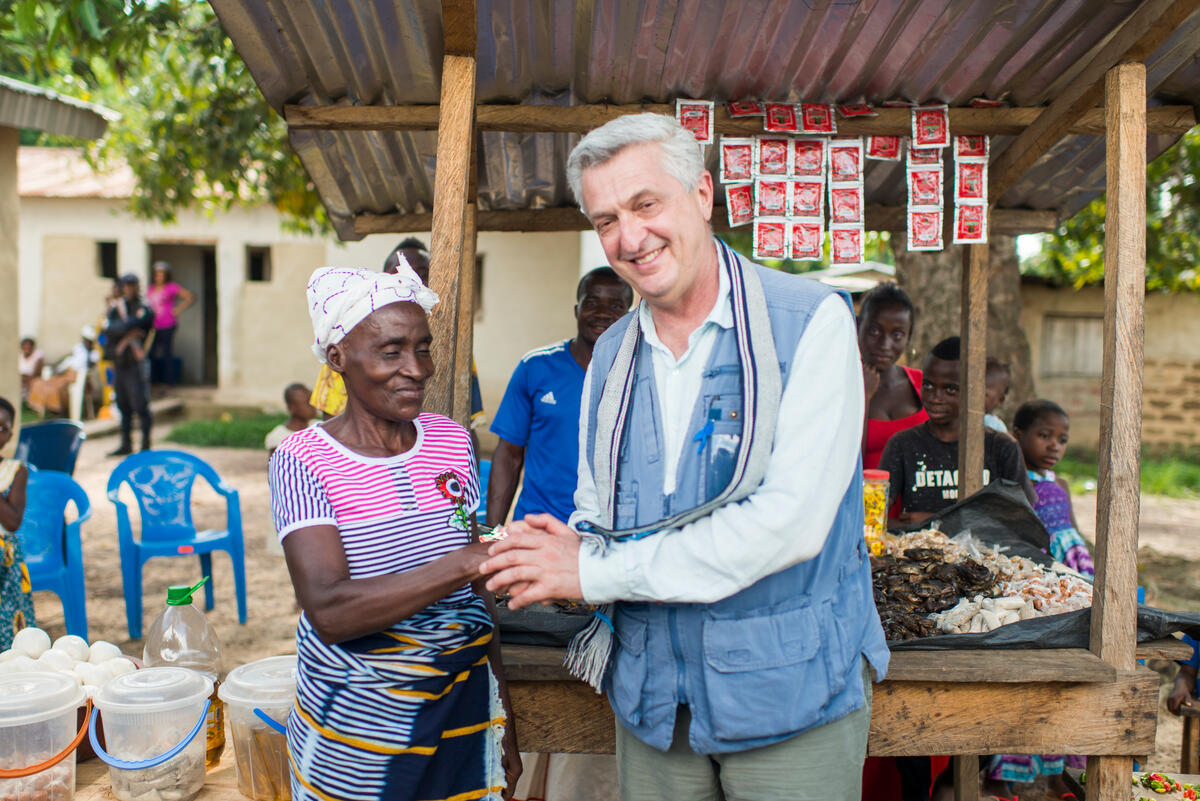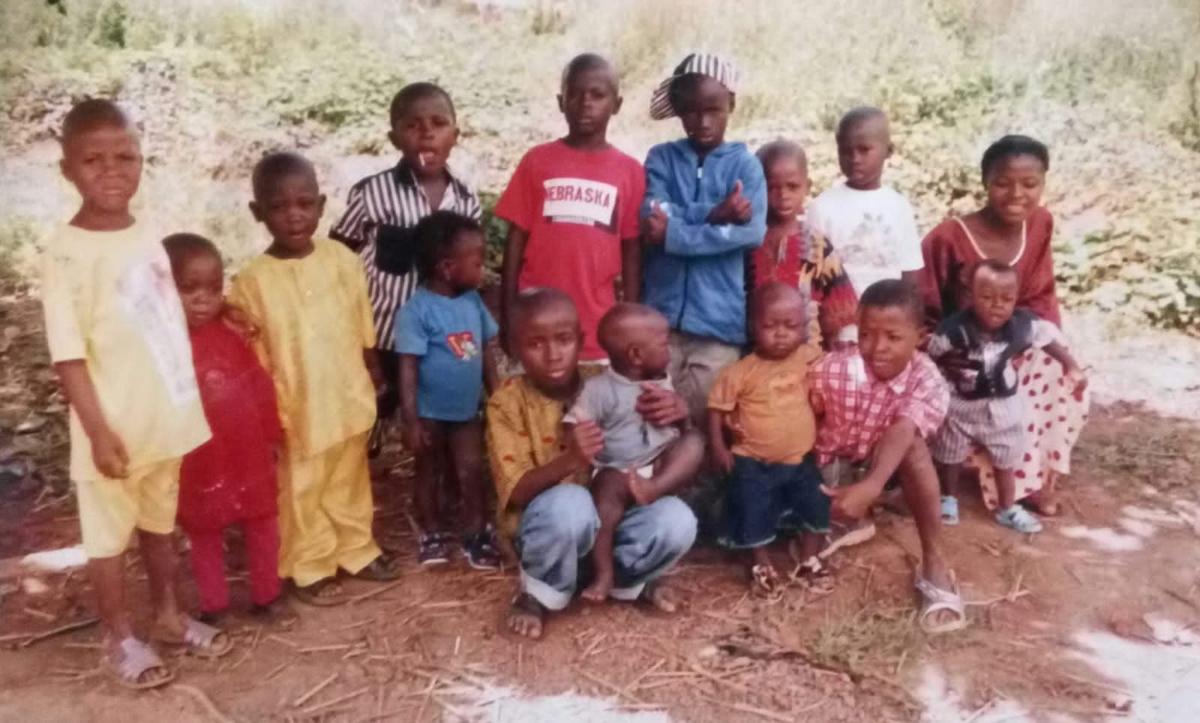Liberian refugees returns from Sierra Leone and Guinea
Liberian refugees returns from Sierra Leone and Guinea
Returns of Liberian refugees from Sierra Leone and Guinea continue to be recorded in different parts of Liberia in a sign of increased confidence in the peace process. The worrying aspect of this trend is that many of these spontaneous returnees end up displaced inside Liberia as poor security conditions in some parts of the country do not allow them to go back to their homes. UNHCR and its partners are continuing to do their best to monitor the return and assist with emergency relief where possible.
We have been assisting spontaneous returnees, who arrive at the border from Sierra Leone, with onward transportation to Monrovia. There, most of them are being accommodated in a way-station set up recently at Perry Town. Some are housed in camps for internally displaced persons (IDPs) around the capital. Last Tuesday alone, a group of over 800 Liberians returning from Sierra Leone arrived through the Bo waterside border crossing. UNHCR quickly responded by sending additional trucks to transport the returnees on to Monrovia.
Over 5,000 returnees from Sierra Leone are presently at the way-station and in IDP camps, mainly Seigbeh. Most have now received plots and shelter material to build their own shelters, and an additional 60 shelters are ready for use by vulnerable individuals. Special measures have been taken to provide some family privacy and minimize the risk of sexual and gender-based violence. The returnees receive the same assistance as other IDPs in Liberia.
Through a network of partners, we continue to monitor spontaneous returns in other parts of the country, mainly from Guinea in the northern and eastern counties. According to rough estimates there are over 10,000 returns in Grand Cape Mount county (near the Sierra Leonean border), 11,500 in Bong (across from Nzérékoré in Guinea) and a mixed population of some 35,000 returnees and IDPs in the northern Lofa County, where the ICRC has distributed food, agricultural tools and seeds, and helped restore some basic services. Other UNHCR partners have also been able to distribute some domestic items and agricultural tools in Saclepea, Zwedru and Harper.
Meanwhile our office in Monrovia continues to send daily overland missions to Gbarnga in Bong County, and weekly missions to Bopolu (Lofa County) and Harper (Mariland) as well as Saclepea (Nimbi) and Zwedru (Grand Gedeh) This is designed to increase our presence there, oversee office renovation works and offer limited assistance to returnees and Ivorian refugees still present in the east of Liberia. Office renovation and transit centre construction are continuing in Gbarnga and Saclepea and should start in Zwedru soon. We are also opening a satellite office in Tubmanburg jointly with the Norwegian Refugee Council.
We expect that spontaneous returns will peak in coming months and continue at a high level during the first months of next year, in the run-up to the Presidential elections scheduled for 2005. The present challenge is to ensure that conditions on the ground are sufficiently improved for the people to be able to return and live a normal and productive life.
UNHCR plans to facilitate the return and reintegration of an estimated 320,000 Liberian refugees from the region and 300,000 camp-based internally displaced persons this year, pending the full deployment of UNMIL (UN Mission in Liberia) troops and improved security and access in the areas of return.
Today we are also for the first time assisting 65 displaced teachers and their families to return to Zwedru, in Grand Gedeh County. The exercise is part of efforts by the ministry of education to kick start basic services in areas of return of the displaced population. The teachers, previously working with the Multilateral High School in Zwedru, are among the tens of thousands of Liberians who sought refuge in Monrovia at the height of fighting in the country last year. Their decision to return to Zwedru at this time reflects an increased confidence in the peace process and the presence of UNMIL in Zwedru.








